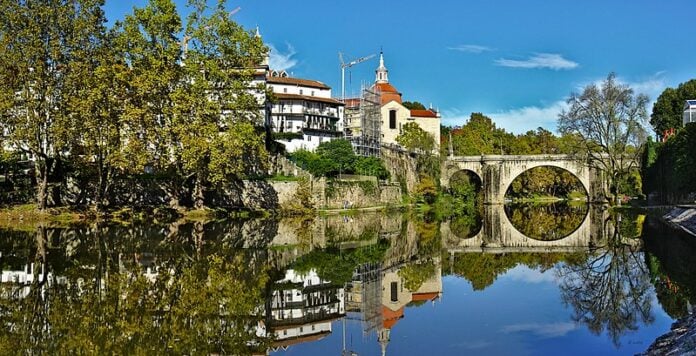Portugal is a land of castles, azulejos, fado, and seriously good food, but let’s be honest: it is also a land of some seriously impressive bridges. But which one is the best? Today, we are hosting the ultimate face-off, pitting Lisbon against Porto, modern vs. historical, and even considering whether uniquely quirky might just be the best. Only one bridge will be crowned the ultimate champion of Portugal. Place your bets now. Do you already have a guess?
Lisbon’s Heavyweights – Ponte Vasco da Gama vs. Ponte 25 de Abril
If Lisbon were a boxing ring, two giants would dominate the space. On one side stands the Ponte Vasco da Gama, the longest bridge in Portugal (and one of the longest in Europe), stretching an absurd 17 kilometers across the Tagus River. Built in the late 1990s to handle traffic overflow from Lisbon’s other big bridge, it feels like you might be entering a completely different country by the time you reach the other side. We realize that this is a bit of an exaggeration, but it can definitely feel that way on foggy days.
Here’s the thing though: Ponte Vasco da Gama doesn’t have much personality. It’s like the dependable friend who helps you move apartments but doesn’t often crack a smile. You respect them. You appreciate them, but are they the first person you would call when you want to be entertained? Not really.
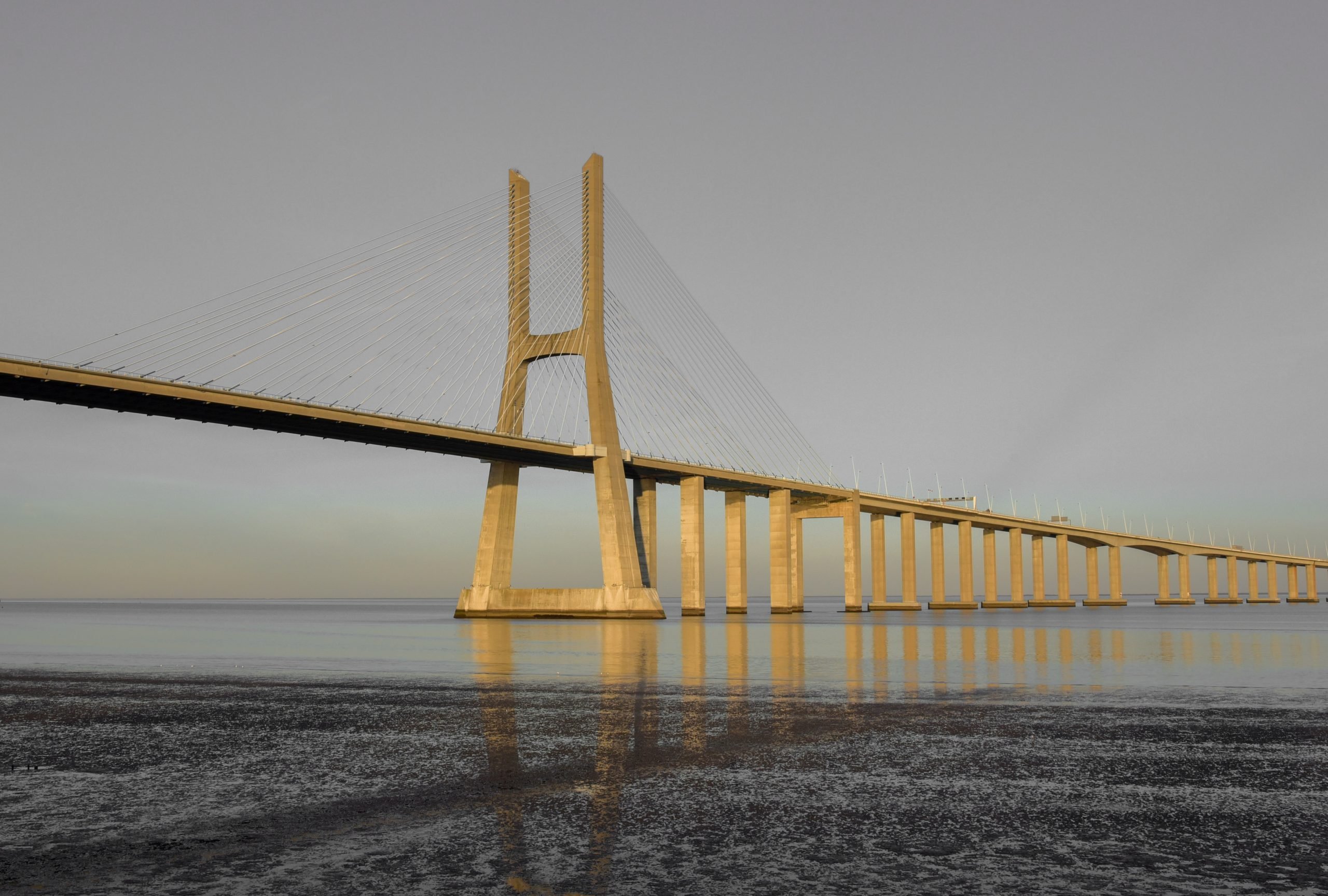
In the other corner is Ponte 25 de Abril, Lisbon’s iconic red suspension bridge (and Golden Gate lookalike). Completed in 1966, it was originally named after the dictator António de Oliveira Salazar. After the Carnation Revolution in 1974, it was fittingly renamed to commemorate April 25, the day of Portugal’s rebirth as a democracy. With its striking resemblance to San Francisco’s Golden Gate Bridge, it instantly grabs your attention. Unlike Vasco da Gama, it is not only a road bridge but also carries trains on its lower deck. That alone gives it extra points. Ponte 25 de Abril is the kind of friend who shows up to help you move and brings pizza and a playlist to keep up with the energy and give you options when your energy starts to wane.
Considering these two options, we say that Round 1 goes to Lisbon’s symbol of freedom.
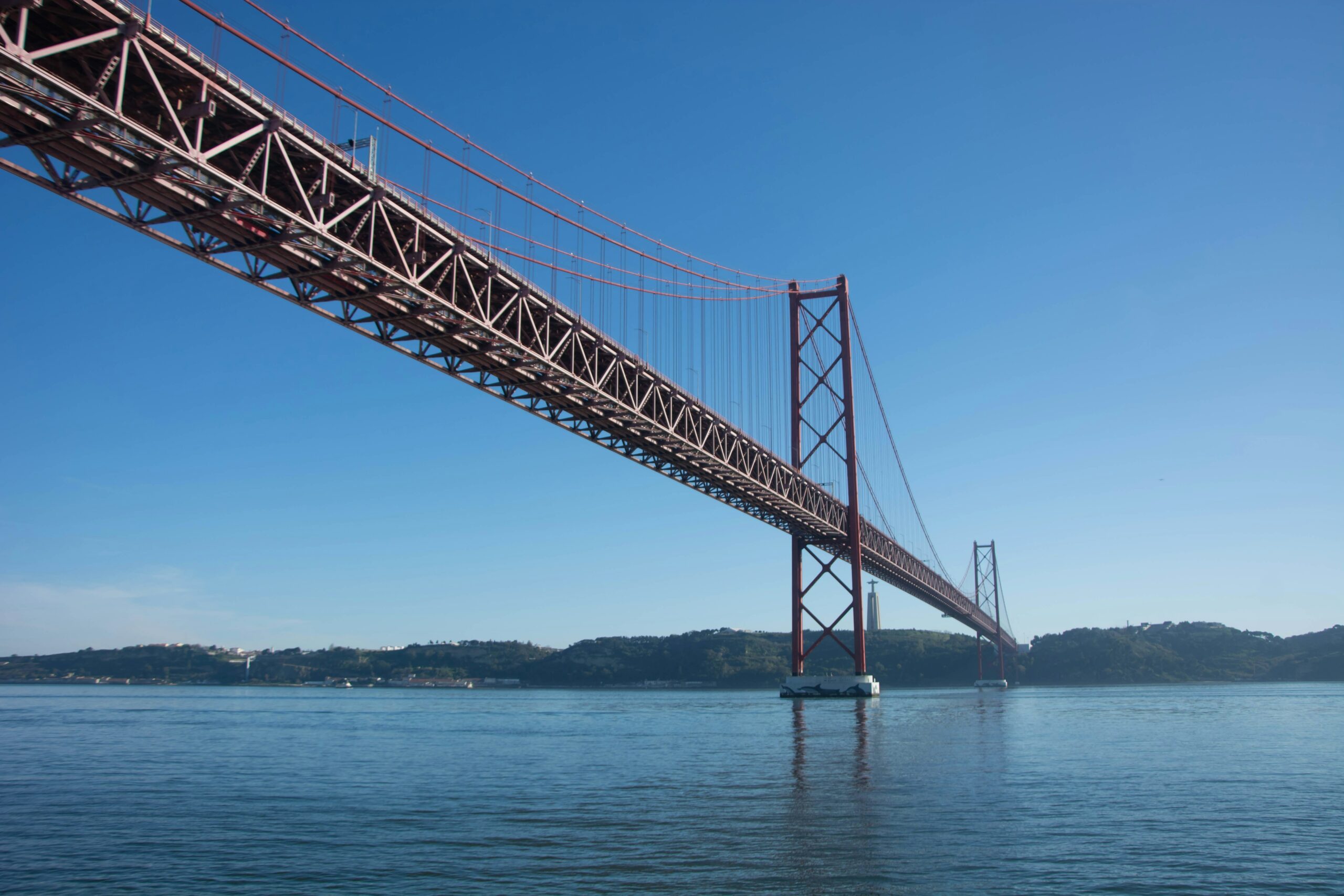
Porto’s Contenders – Dom Luís I and Arrábida
Move north to Porto, and the drama intensifies. Here, we have not one, not two, but six bridges that Douro River, each with their own personality.
The Dom Luís I Bridge is the star attraction. Built in 1886 with input from a student of Gustave Eiffel, this double-deck iron bridge allows pedestrians to stroll across the top level with sweeping views of Porto and Vila Nova de Gaia. Down below, cars and buses rumble along while port wine cellars line the riverbanks. Tourists fall in love with this bridge faster than they fall in love with their first sip of tawny. In fact, it was one of sights in Portugal that truly took our breath away the first time we saw it.
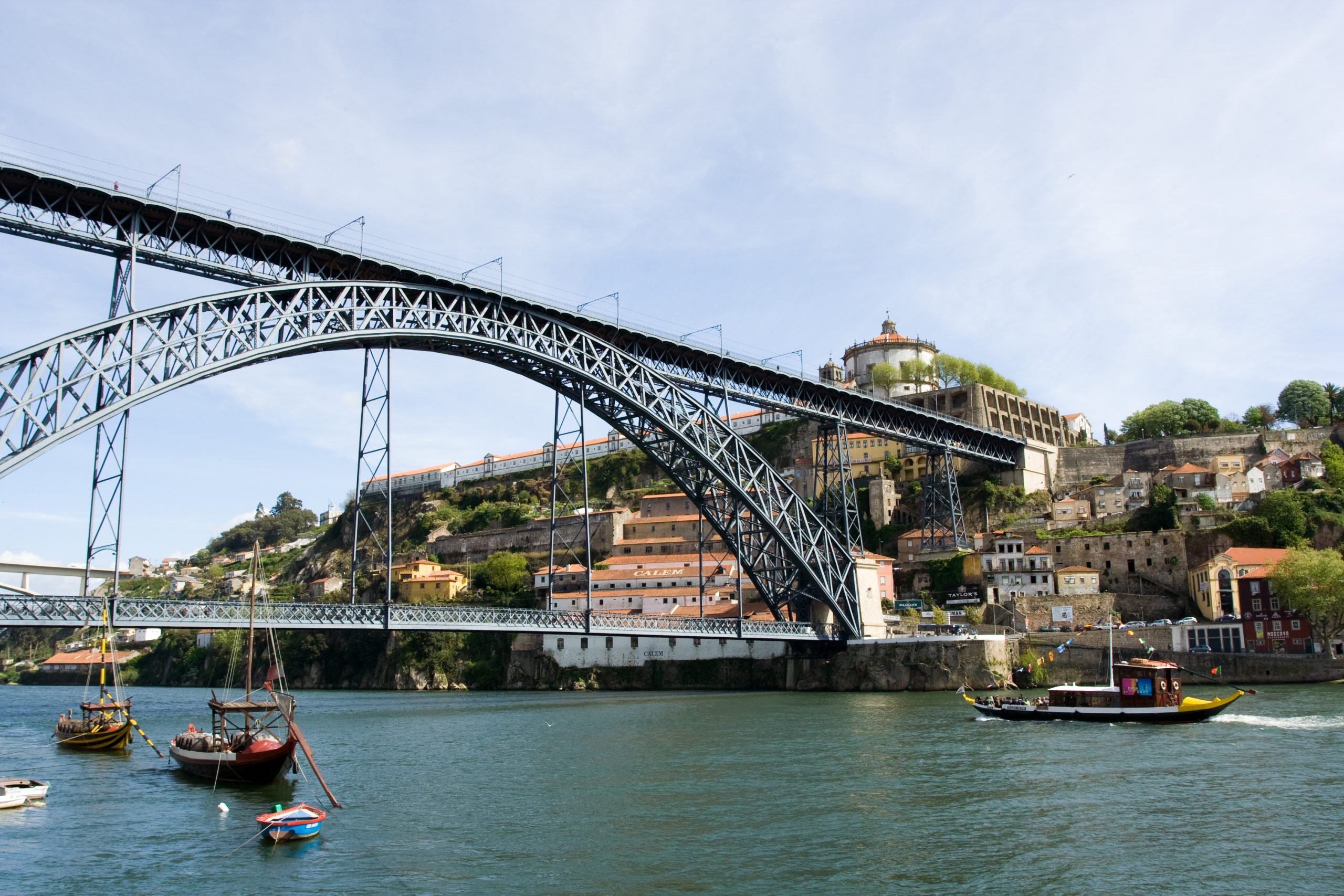
Then there’s the Arrábida Bridge, with its sweeping concrete arch that was once the largest of its kind in the world. Opened in 1963, it was a symbol of Portuguese modernity and ambition. Today, thrill-seekers can climb its arch on guided tours, the first of the bridges that we’ve mentioned so far that add a touch of daredevil excitement to the Portuguese bridge experience.
Both Porto bridges ooze charm. Dom Luís I has romance, history, and jaw-dropping views. Arrábida has boldness and an adventurous edge. However, when it comes to symbolic power, neither can quite outshine what Lisbon’s Ponte 25 de Abril represents.
The Skywalk Wonder – 516 Arouca Bridge
Now let’s talk about Portugal’s dare-you-to-look-down champion: the 516 Arouca Bridge. Hanging over the Paiva Gorge, it stretches 516 meters in length and dangles 175 meters above the river. Opened in 2021, it is the longest pedestrian suspension bridge in the world. Crossing it is like starring in your own adventure film. Every gust of wind, every sway under your feet, is a reminder that you are very much alive.
It’s magnificent, it’s terrifying, and it’s becoming more of a tourist magnet every year. Still, its biggest flaw is that it’s not an everyday bridge. Nobody is commuting to work on it. It’s not something that people pass by every day. It’s a one-time thrill ride for most people that will ever see it. As much as we admire its audacity and its record-setting feat, it doesn’t quite reach the symbolic greatness of all-time best bridge in Portugal for us.
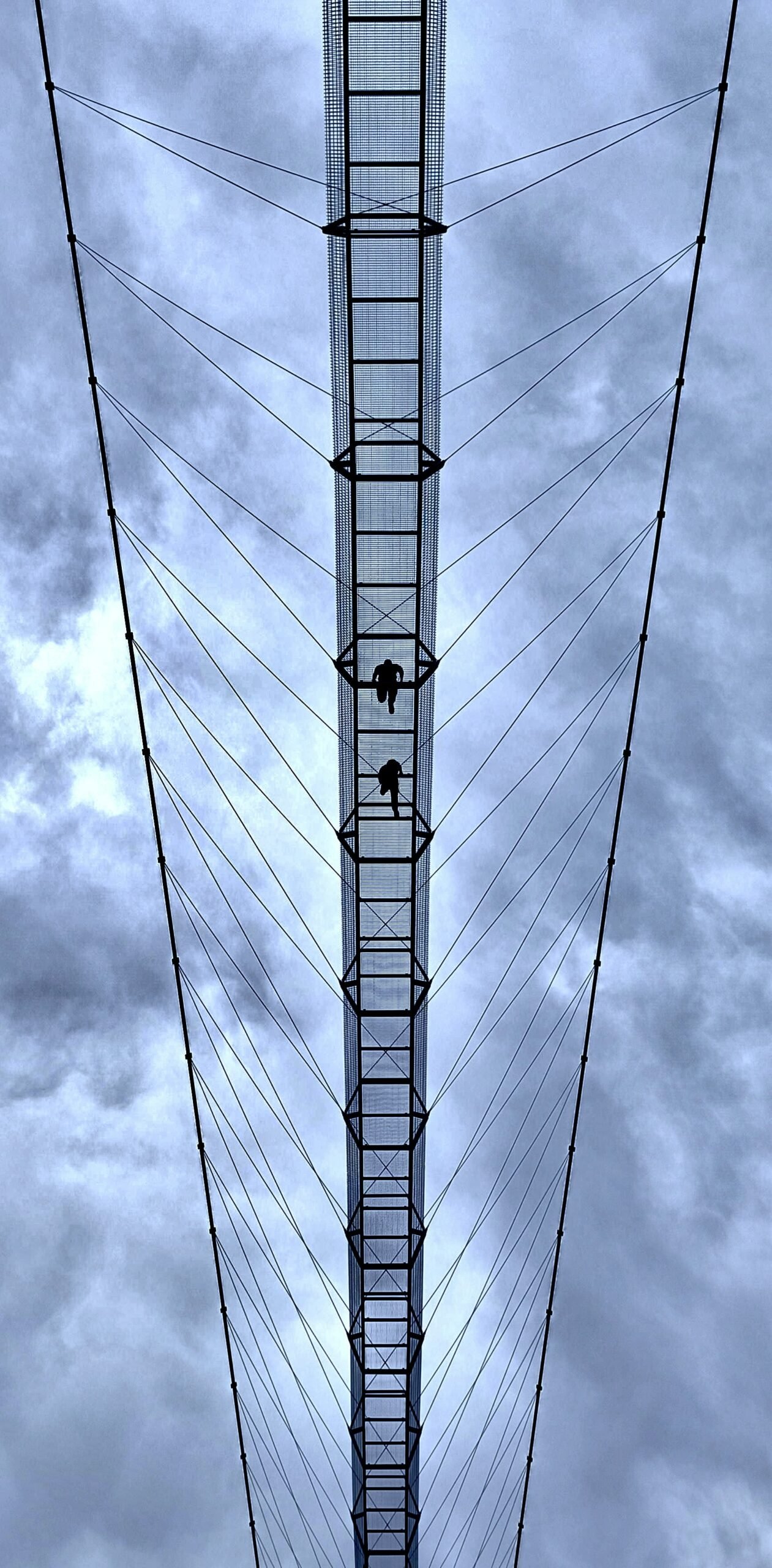
The Tiny Challenger – Ponte Internacional do Marco
The wildcard has just entered the chat and its name is Ponte Internacional do Marco. Located in the Alentejo region, this small wooden bridge is barely six meters long and only wide enough for pedestrians or bicycles. It connects Portugal with Spain across the Abrilongo stream. Blink and you’ll miss it. Legend has it that smugglers once used it to sneak goods across the border, though now it’s mostly a curiosity for tourists and trivia fans.
Can a bridge the size of a small living room really compete with the titans of Lisbon and Porto? Of course not. However, it certainly deserves an honorable mention just for being the plucky underdog in this battle, and for setting another record of world’s smallest international bridge. Imagine it standing next to Ponte 25 de Abril in a lineup. The comparison is so absurd that it can’t help but make us smile.
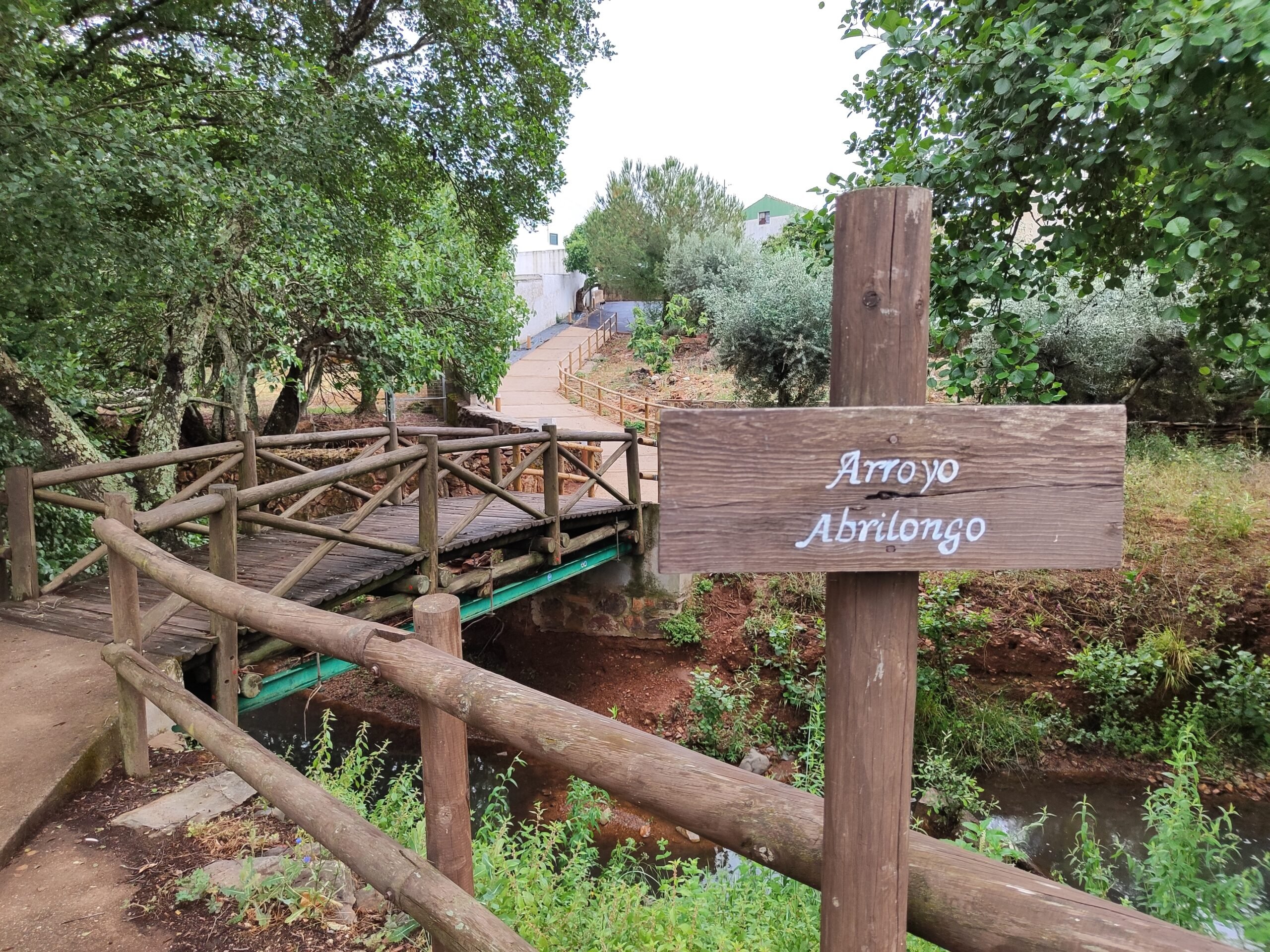
The Defender of Portuguese Honor – Ponte de São Gonçalo, Amarante
No discussion of Portuguese bridges would be complete without Ponte de São Gonçalo in Amarante. Stretching across the Tâmega River, this stone arch bridge is as picturesque as they come. It looks like it was pulled straight out of a painting, framed by tiled houses, a riverside promenade, and the grand Church of São Gonçalo itself. The reflection of its arches on the water creates a postcard-perfect scene that draws travelers from near and far, especially on day trips from Porto (in case you were wondering).
Beauty, however, is not the only reason this bridge matters. Ponte de São Gonçalo carries a heavy weight of history. During the Peninsular War in 1809, local forces and townspeople famously defended the crossing against Napoleon’s invading army. The bridge became a symbol of resilience and resistance in a small Portuguese town that refused to surrender.
Today, walking across it feels like stepping back through centuries. For Amarante, Ponte de São Gonçalo is a monument to courage.

Other Noteworthy Bridges
Portugal is overflowing with bridges that could each make a case for themselves. The Trajan’s Bridge in Chaves, with its ancient arches spanning the Tâmega River, is still standing after nearly two thousand years. The Santa Clara Bridge in Coimbra, meanwhile, connects the historic university town with its quieter counterpart across the river. Finally, in Tavira, the so-called Old Bridge adds small-town charm to the Algarve.
Each of these has local importance and beauty, but for this nationwide showdown, we need a champion that symbolizes something bigger.
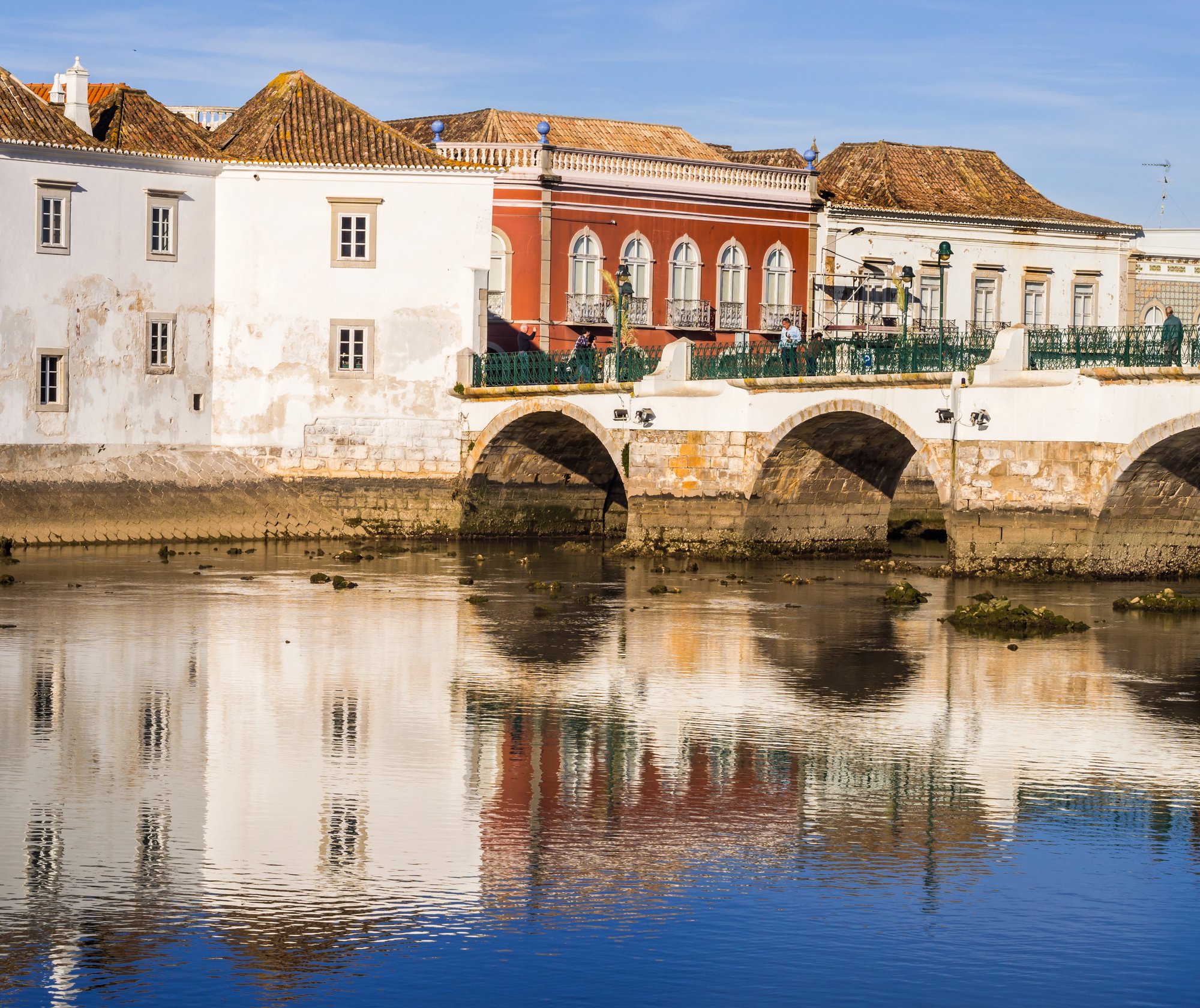
And the Winner Is…
So here it is. The big reveal. After all the contenders have strutted across the stage, only one bridge can take home the crown. And the winner is…Ponte 25 de Abril.

Why? Let’s break it down.
First, it’s timeless and stunning. It soars across the Tagus with a grace that takes your breath away. From a thousand different viewpoints, it dominates the Lisbon skyline in the best possible way.
Second, it carries enormous symbolic weight. Built under a dictatorship and named after Salazar himself, it was reclaimed by the people after the Carnation Revolution and named after the day that the Portuguese people reclaimed their freedom. Few bridges in the world carry such a powerful story of transformation. Every car, bus, and train that crosses it is a reminder of Portugal’s resilience and rebirth.
Third, it is useful on top of being beautiful and symbolic. While Vasco da Gama may be longer and Dom Luís I may be prettier up close, Ponte 25 de Abril does something no other bridge in the country does: it carries both cars and trains.
Finally, it captures the imagination. Ask any Lisboner or tourist which bridge defines the city, and the answer is almost always the same. Ponte 25 de Abril is Lisbon’s heartbeat, Portugal’s symbol, and the country’s best bridge.
Runner-Up Podium
Every competition deserves medals, even when the winner is clear. So, let’s hand out some silver and bronze.
Silver Medal
Dom Luís I Bridge in Porto
For sheer romance and the unforgettable view of Porto’s rooftops and Gaia’s wine cellars, Dom Luís I takes second place. It may not carry the same political symbolism as Ponte 25 de Abril, but it wins hearts with its elegance and sophistication.
Bronze Medal
Ponte Vasco da Gama in Lisbon
The sheer scale of Vasco da Gama is impressive enough to secure a podium spot. It might lack personality, but it proves that function and ambition matter in their own right.
Participation Trophy
Ponte Internacional do Marco
Because how can we not? It’s tiny, it’s quirky, and it proudly does its job – even if that job is just letting a pedestrian cross from Portugal into Spain in about three seconds flat.
Final Thoughts
Portugal’s bridges are as diverse as its wines, landscapes, and dialects. Each one has its own story and sticks in the hearts and minds of Portuguese locals and visitors. However, when you consider beauty, symbolism, function, and sheer statement-making, Ponte 25 de Abril stands alone at the top. It is the bridge that unites the city, carries the nation’s history, and continues to inspire awe on a daily basis.
So, the next time you find yourself in Lisbon, look up at the red towers rising proudly out of the Tagus, with a Cristo Rei looking down upon them, giving them his blessing: you are looking at the greatest bridge in Portugal.
Do you agree? Let us know in the comments!

